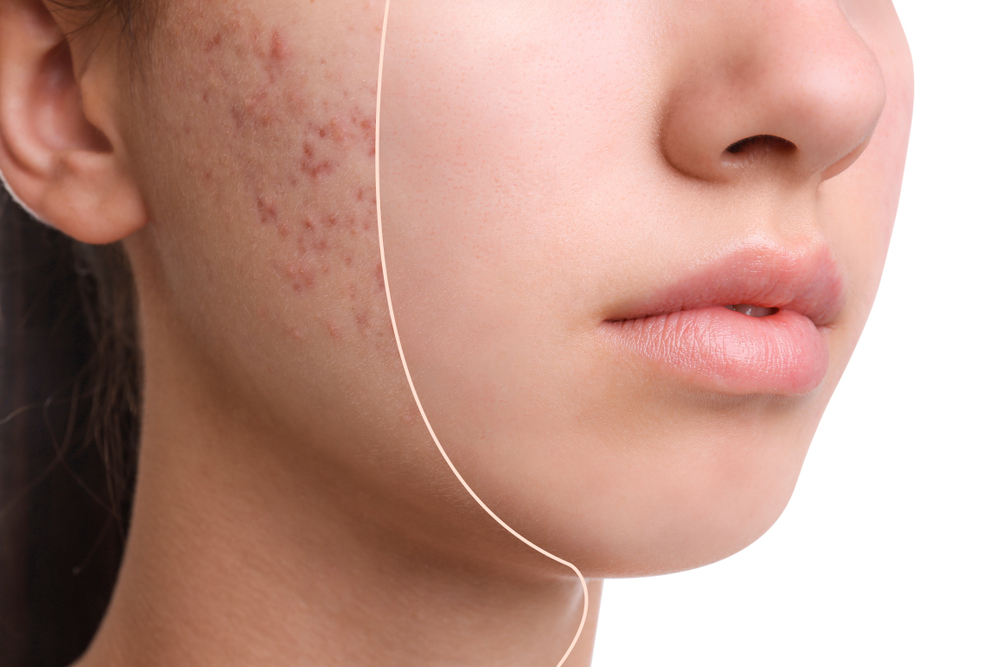Skin Care Tips
Acne Pimples
Discovering the Causes, Prevention, and Treatment of Acne and Pimples
Millions of people throughout the world suffer from acne and pimples, two of the most prevalent
skin disorders. Acne, which is frequently linked to puberty, can last into adulthood and
negatively affect one’s quality of life and sense of self. In order to ensure a clear, healthy
complexion, this article offers a thorough overview of acne and pimples, their origins, and the
most effective preventative and treatment techniques.
What Are Pimples and Acne?
When oil, dead skin cells, and bacteria block hair follicles, acne, a chronic inflammatory skin
disorder, develops. It also leads to a form of acne called pimples, sometimes referred to as
breakouts or spots. Since sebaceous glands are most active on the face, back, chest, and
shoulders, they frequently show up there.
Common Reasons for Pimples and Acne
Hormonal Fluctuations: Stress, menstruation, puberty, and pregnancy can all cause hormonal
shifts that increase oil production, which can clog pores and cause acne.
Excess Sebum Production: Excessive oil produced by overactive sebaceous glands can clog
pores when it combines with dead skin cells.
Bacterial Growth: In clogged pores, the bacteria Propionibacterium acnes flourishes, causing
inflammation and pimples.
Dietary Factors: For certain people, foods heavy in sugar, dairy, or processed ingredients might
aggravate acne.
Bad Skincare Practices: Irritating the skin and making acne worse can be achieved by using
harsh skincare products, washing too much, or forgetting to remove makeup.
Genetics: The chance of getting acne may be raised by a family history of the disorder.
Preventing Acne and Pimples
- Adopt a Gentle Skincare Routine: Use a mild cleanser twice daily to remove dirt, oil,
and makeup without stripping the skin of natural moisture. - Keep Hands Off Your Face: Avoid touching your face to prevent transferring bacteria
and oils from your hands to your skin. - Choose Non-Comedogenic Products: Opt for skincare and makeup products labeled
“non-comedogenic” to reduce the risk of clogged pores. - Keep Your Diet Balanced: Limit processed and sugary foods and include fruits,
vegetables, whole grains, and lean proteins. - Keep Yourself moisturized: Drinking lots of water keeps the skin moisturized and aids
in the body’s detoxification. - Handle Stress: To lessen hormone imbalances, engage in stress-relieving activities like
yoga, meditation, or physical activity.
Acne & Pimple Treatments That Work
- Topical Interventions:
● Benzoyl Peroxide: Reduces inflammation and eliminates germs that cause acne.
● Salicylic Acid: Clears clogged pores and exfoliates the skin.
● Retinoids: Encourage cell division and stop new acne lesions from developing. - Oral Drugs:
● Lower inflammation and bacterial growth.
● Anti-androgen drugs and birth control tablets can control hormone levels.
● A potent drug that lowers inflammation and oil production in cases of severe acne. - Expert Therapies:
● To clear clogged pores and lessen acne scars, chemical peels remove the epidermis.
● Target microorganisms and lessen inflammation with laser and light therapy.
● Dermatologists use extraction procedures to remove whiteheads and blackheads safely. - Natural Solutions:
● Helps lessen acne because of its antibacterial qualities.
● Encourages healing and soothes irritated skin.
● Has antimicrobial properties of its own.
When to See a Dermatologist
If home remedies and over-the-counter medications don’t help your acne, it might be time to see
a dermatologist. Acne that is painful, persistent, or cystic frequently needs to be evaluated by a
professional and treated specifically to avoid long-term skin damage and scarring.
Conclusion:
Despite being annoying, acne and pimples may be controlled with the correct strategy. You can
attain healthier, clearer skin by being aware of their origins, taking preventative action, and
getting the right remedies. Recall that the secret to long-term success in skincare and lifestyle
modifications is consistency. Do not be afraid to seek professional assistance for individualized
care if your acne continues.

